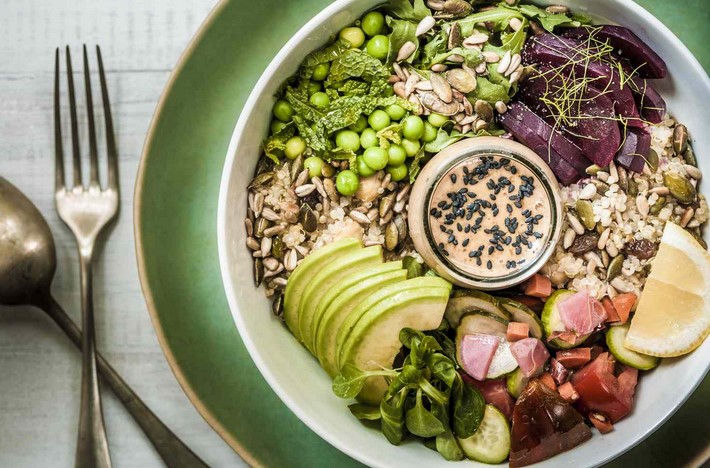
High Protein Vegan Meals: Plant-Based Options for Nutrition is a comprehensive guide that explores the world of veganism, focusing on meals that are rich in protein. This guide provides a variety of plant-based options that are not only delicious but also nutritionally balanced. It aims to debunk the common misconception that vegans struggle to get enough protein in their diet. From legumes and grains to nuts and seeds, the guide highlights a plethora of ingredients that can be used to create high-protein vegan meals. It serves as a valuable resource for those who are new to veganism, seasoned vegans looking for more protein-rich meal ideas, or anyone interested in incorporating more plant-based meals into their diet.
Exploring High Protein Vegan Meals: A Comprehensive Guide to Plant-Based Nutrition
High protein vegan meals are a cornerstone of plant-based nutrition, offering a wealth of health benefits and a sustainable way to meet dietary needs. As the popularity of veganism continues to rise, so too does the demand for nutritious, protein-rich meals that are both satisfying and cruelty-free. This article aims to explore the myriad of high protein vegan meals available, providing a comprehensive guide to plant-based nutrition.
Protein is a vital nutrient that plays a crucial role in virtually every process in our bodies. It aids in building and repairing tissues, producing enzymes and hormones, and supporting a healthy immune system. Traditionally, animal products such as meat, eggs, and dairy are the most common sources of protein. However, a growing body of research suggests that plant-based proteins can offer the same benefits without the associated health risks of animal products.
Legumes, including lentils, chickpeas, and black beans, are among the most protein-dense plant foods. A single cup of cooked lentils, for instance, provides about 18 grams of protein. These versatile ingredients can be used in a variety of dishes, from hearty soups and stews to salads and stir-fries. Similarly, tofu and tempeh, both derived from soybeans, are excellent sources of protein and can be used in a multitude of ways, from grilling and baking to scrambling and stir-frying.
Whole grains, such as quinoa, amaranth, and spelt, are also rich in protein. Quinoa, in particular, is a complete protein, meaning it contains all nine essential amino acids our bodies need. These grains can be used as a base for salads, incorporated into soups, or served as a side dish.
Nuts and seeds, including almonds, chia seeds, and hemp seeds, are another excellent source of plant-based protein. They can be sprinkled on salads, blended into smoothies, or eaten as a snack. Moreover, nut and seed butters, such as almond butter or tahini, can be used in a variety of dishes, from sandwiches to sauces, providing a protein boost.
In addition to these whole foods, there are also a number of processed plant-based proteins available. These include products like seitan, a wheat-based protein, and various types of vegan protein powders. While these can be convenient options, it’s important to read labels carefully, as some may contain added sugars or other unwanted ingredients.
It’s worth noting that while it’s entirely possible to meet protein needs on a vegan diet, it does require some planning and knowledge. It’s important to consume a variety of plant-based proteins to ensure you’re getting all the essential amino acids your body needs. Furthermore, pairing certain foods can enhance protein absorption. For example, combining legumes with grains can create a complete protein.
In conclusion, a vegan diet can provide all the protein your body needs, offering a variety of options from legumes and whole grains to nuts and seeds. With a bit of planning and creativity, it’s entirely possible to create delicious, high protein vegan meals that are both satisfying and nutritious. As more people turn to plant-based diets for health, ethical, and environmental reasons, the demand for high protein vegan meals is likely to continue to grow.High Protein Vegan Meals: Plant-Based Options for Nutrition provide a healthy and sustainable way of meeting daily protein requirements. These meals are not only beneficial for vegans but also for anyone looking to diversify their protein sources. They are rich in essential nutrients, fiber, and antioxidants, contributing to overall health and well-being. Furthermore, they are environmentally friendly, promoting a more sustainable food system. Therefore, high protein vegan meals are a viable and nutritious alternative to animal-based protein sources.